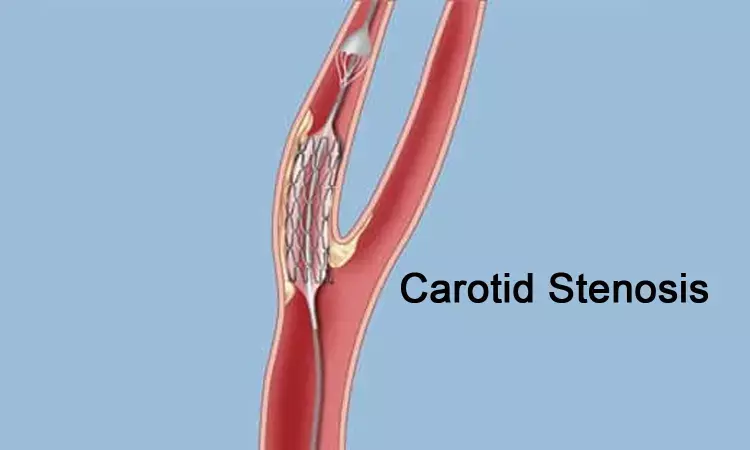- Home
- Medical news & Guidelines
- Anesthesiology
- Cardiology and CTVS
- Critical Care
- Dentistry
- Dermatology
- Diabetes and Endocrinology
- ENT
- Gastroenterology
- Medicine
- Nephrology
- Neurology
- Obstretics-Gynaecology
- Oncology
- Ophthalmology
- Orthopaedics
- Pediatrics-Neonatology
- Psychiatry
- Pulmonology
- Radiology
- Surgery
- Urology
- Laboratory Medicine
- Diet
- Nursing
- Paramedical
- Physiotherapy
- Health news
- Fact Check
- Bone Health Fact Check
- Brain Health Fact Check
- Cancer Related Fact Check
- Child Care Fact Check
- Dental and oral health fact check
- Diabetes and metabolic health fact check
- Diet and Nutrition Fact Check
- Eye and ENT Care Fact Check
- Fitness fact check
- Gut health fact check
- Heart health fact check
- Kidney health fact check
- Medical education fact check
- Men's health fact check
- Respiratory fact check
- Skin and hair care fact check
- Vaccine and Immunization fact check
- Women's health fact check
- AYUSH
- State News
- Andaman and Nicobar Islands
- Andhra Pradesh
- Arunachal Pradesh
- Assam
- Bihar
- Chandigarh
- Chattisgarh
- Dadra and Nagar Haveli
- Daman and Diu
- Delhi
- Goa
- Gujarat
- Haryana
- Himachal Pradesh
- Jammu & Kashmir
- Jharkhand
- Karnataka
- Kerala
- Ladakh
- Lakshadweep
- Madhya Pradesh
- Maharashtra
- Manipur
- Meghalaya
- Mizoram
- Nagaland
- Odisha
- Puducherry
- Punjab
- Rajasthan
- Sikkim
- Tamil Nadu
- Telangana
- Tripura
- Uttar Pradesh
- Uttrakhand
- West Bengal
- Medical Education
- Industry
Medical therapy as effective as endarterectomy for asymptomatic carotid stenosis

Researchers have found in a comparative effectiveness study that 5-year stroke risk did not differ significantly for patients who had carotid endarterectomy (CEA) vs initial medical therapy for asymptomatic carotid stenosis.
Carotid endarterectomy (CEA) among asymptomatic patients involves a trade-off between a higher short-term perioperative risk in exchange for a lower long-term risk of stroke.
Researchers conducted the study to examine whether early intervention (CEA) was superior to initial medical therapy in real-world practice in preventing fatal and nonfatal strokes among patients with asymptomatic carotid stenosis.
Last relevant randomized controlled trial (RCT) began 25 years ago.The data from the modern era offer a shift in perspective, especially with consideration of competing risks.
Data analyzed were those of veterans of the US Armed Forces aged 65 years or older who received carotid imaging between January 1, 2005, and December 31, 2009. Carotid imaging performed 2005-2009, and stenosis ≥70% was treated with CEA or initial medical therapy.The data were analyzed for a pragmatic sample, and "RCT-like" sample of patients would have met inclusion criteria for RCT. The main outcome of the research was risk for fatal, nonfatal strokes.
The researchers found that there was an overall, 2.5% rate of stroke or death within 30 days of carotid endarterectomy. In the RCT-like sample, 5-year stroke risk was lower with CEA than with initial medical therapy:5.6% vs 7.8%.Risk difference: −2.3% (95% CI, −4.0% to −0.3%).When competing for risk for nonstroke death was considered, however, the risk difference decreased to −0.8% (95% CI, −2.1% to 0.5%). Among patients in the RCT-like sample meeting trial inclusion criteria, 5-year stroke risk was lower with CEA:5.5% vs 7.6%.Risk difference: −2.1% (95% CI, −4.4% to −0.2%).When competing risk was taken into account, however, the risk difference decreased to −0.9% (95% CI, −2.9% to 0.7%)
The limitations included mainly older male veterans.
Exclusions (e.g., milder stenosis, recent stroke).Perioperative mortality risk not incorporated. Some stroke deaths potentially missed.
For further reference log on to:
Keyhani S, Cheng EM, Hoggatt KJ, Austin PC, Madden E, Hebert PL, Halm EA, Naseri A, Johanning JM, Mowery D, Chapman WW, Bravata DM. Comparative Effectiveness of Carotid Endarterectomy vs Initial Medical Therapy in Patients With Asymptomatic Carotid Stenosis. JAMA Neurol. 2020 Jun 1 [Epub ahead of print].
Dr Kamal Kant Kohli-MBBS, DTCD- a chest specialist with more than 30 years of practice and a flair for writing clinical articles, Dr Kamal Kant Kohli joined Medical Dialogues as a Chief Editor of Medical News. Besides writing articles, as an editor, he proofreads and verifies all the medical content published on Medical Dialogues including those coming from journals, studies,medical conferences,guidelines etc. Email: drkohli@medicaldialogues.in. Contact no. 011-43720751


